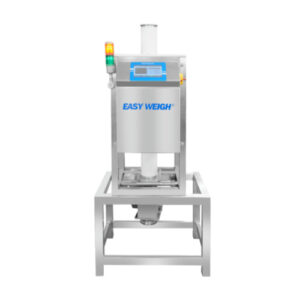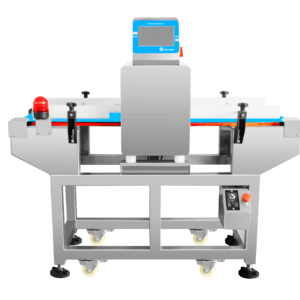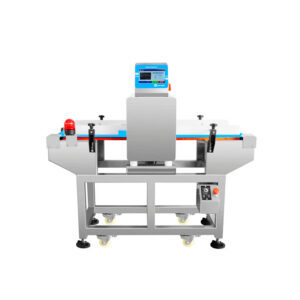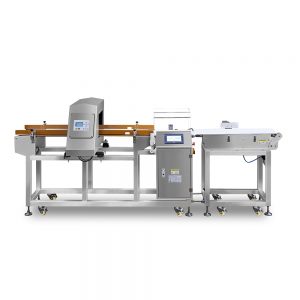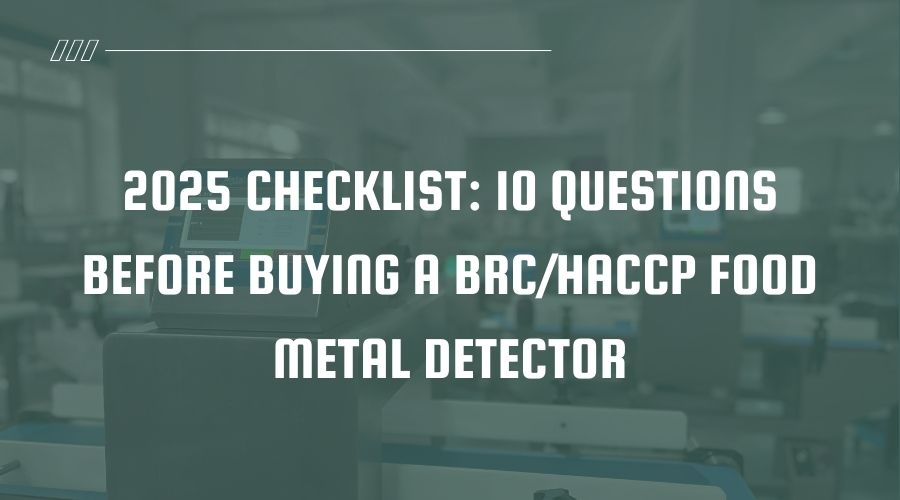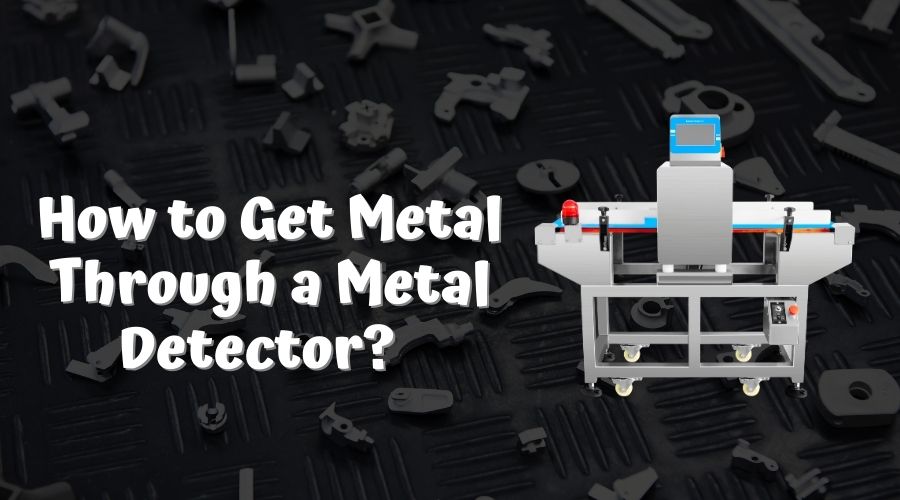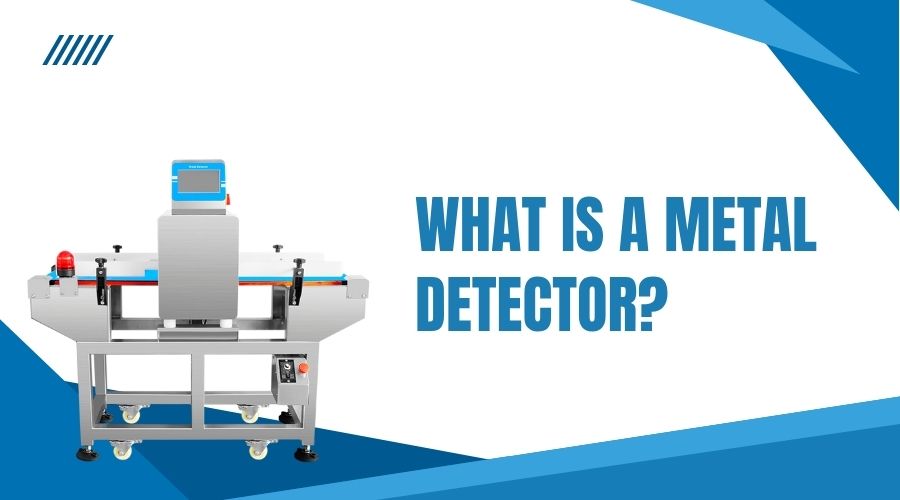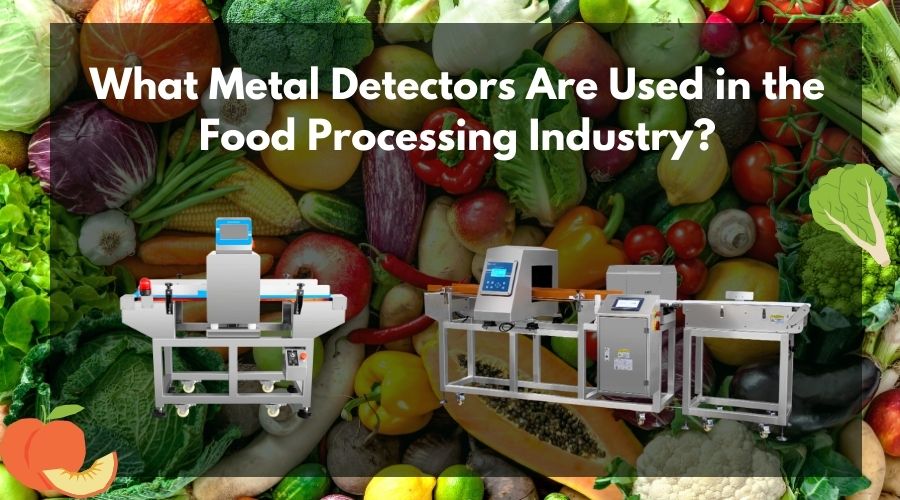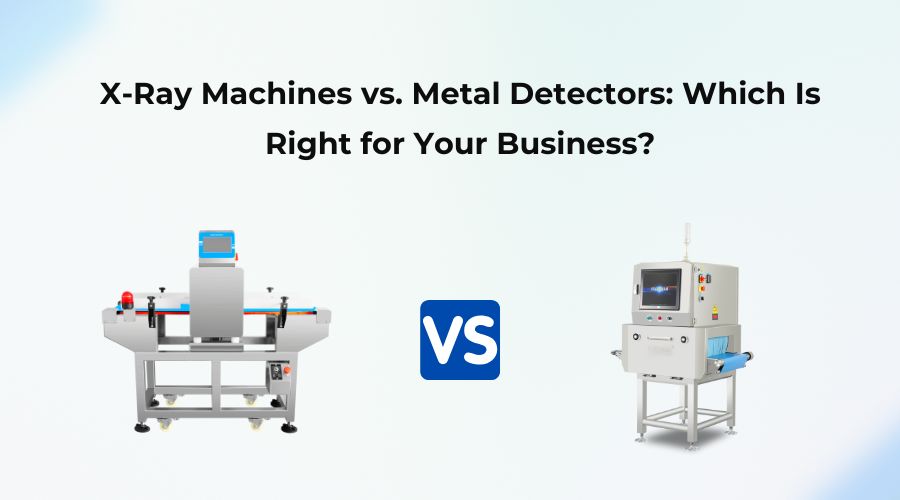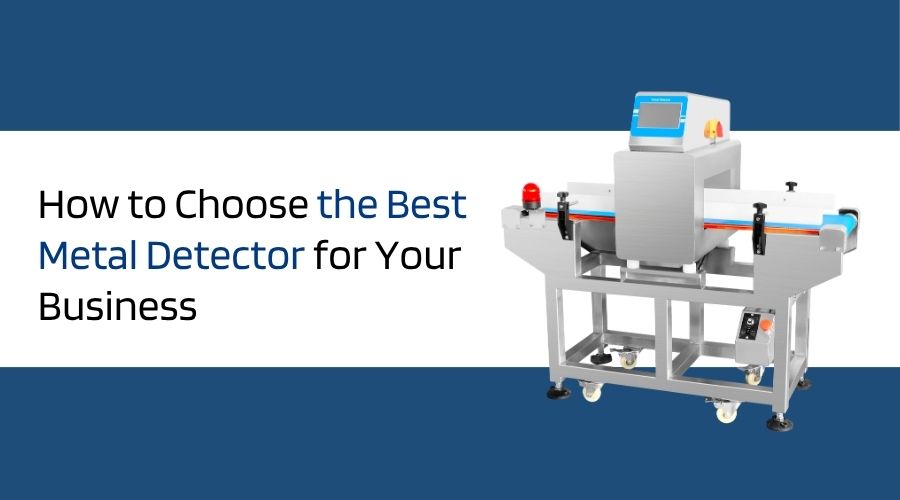metal detector
Discover top-rated metal detectors for food safety, packaging, and food industrial applications. Learn how metal detectors work and how to detect metals like aluminum, ferrous, non-ferrous, and stainless steel.
Why Choose Foodman metal detector
Metal detectors operate by generating an electromagnetic field that scans products as they move through the system. When a metal contaminant enters this field, it disturbs the electromagnetic waves, triggering the detector. The system then signals the presence of unwanted metal, allowing for immediate removal or alerting operators.
AI-Learning Function
Our food metal detector features advanced AI self-learning technology that adapts automatically to different products and packaging. It stable performance and reduces false rejects, even in challenging applications like wet, salty, or conductive food.
High Accuracy ±0.1 mm
With detection accuracy as fine as ±0.1 mm, our metal detector can identify even the smallest detected metal fragments. This guarantees top-level protection for consumers and compliance with food safety standards.
Multi-Metal Detection
Our metal detectors can identify ferrous, non-ferrous, and stainless steel contaminants. Whether it’s steel fragments, brass, or hidden stainless particles, the system ensures nothing escapes detection.
Aluminum & Non-Ferrous Metal Detection
Does aluminum set off metal detectors? With Easyweigh’s Metal Detector For Aluminum Foil Packaged Products, the answer is yes. Our technology can detect foreign metal objects in aluminum foil packaging, making it ideal for food packaged in aluminum foil.
Seamless Integration into Food Industry
Our metal detector for food industry is engineered for easy integration into existing production lines, including conveyors and packaging machines. This ensures minimal downtime and smooth operation across various applications.
Wide Applications Across Industries
From food metal detection in snacks, meat, seafood, and bakery items, to pharmaceuticals and packaging inspection, our metal detectors provide a reliable safeguard against contamination.
Industries We Serve
Seafood
Detects small non-ferrous metals and stainless steel in fillets, shrimp, and shellfish.
Meat & Poultry
Ensure safety by blocking detected metal fragments like bone needles or steel wool.
Snacks & Bakery
Food metal detectors catch ferrous, non-ferrous, and stainless steel contaminants in packaged or unpackaged snacks.
Pharmaceuticals
Metal detectors effectively detect iron and non-iron components in tablets and capsules.
Insights & Guides on Metal Detectors
Stay updated with the latest knowledge about food metal detectors, detection technology, and industry compliance. These blogs explain how do metal detectors work, what metals do metal detectors detect, and where to use a metal detector in modern industries.
Frequently Asked Questions
Got questions about metal detectors or how metal detectors work? Find the answers here.
Foodman metal detectors use advanced electromagnetic technology to detect aluminum and other non-ferrous metals contaminants of various products, allowing for accurate detection.
In the food processing line, metal detectors use electromagnetic fields to scan food products as they pass through the system. When a metal contaminant is detected, the system triggers an alert and removes the product from the line to prevent contamination.
Our metal detectors can detect ferrous metals (like iron), non-ferrous metals (such as aluminum and copper), and stainless steel, ensuring comprehensive protection for your products.

